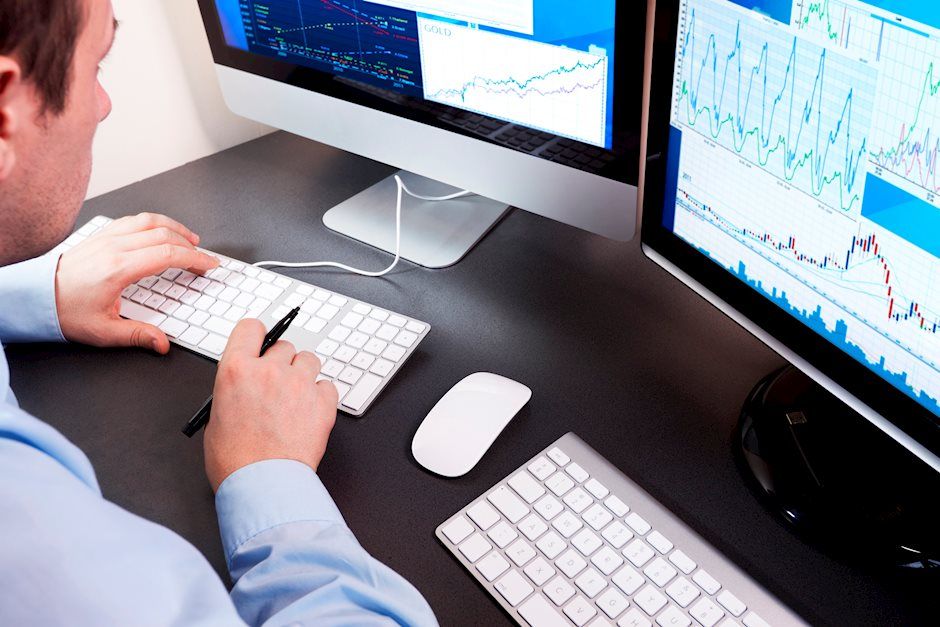Stop Reading the News!

Conventional wisdom says that information is good… more is better… and even more is best.
I used to work for a hedge fund manager who was obsessed with reading news on his Bloomberg terminal. He’d brag about reading “hundreds” of news stories before anybody else had even rolled out of bed.
To him, more information made him feel more informed, smarter and more skillful at trading foreign currency markets, which are notoriously news-driven.
That may have worked for him. But I’m convinced that the average retail investor does worse with their investments… the more they read the news.
That should be troubling to you, because there’s been no time in the history of man when access to information and data has been greater. And while advancements in Internet access and information availability have benefitted societies in many ways – it hasn’t all been good. Overconsumption has become a big issue.
Think of it this way…
You’ve heard the saying, “The dose makes the poison.” It means that, basically, anything can be a poison if consumed in large enough quantities. Alcohol. Chocolate. Coffee. Oranges. A little is nice. Too much is poisonous.
The same goes for information, which is why I’m recommending today that you immediately stop reading the news!
And I’m not the only one saying this…
Last week, I shared an opinion piece on this topic with my Project V readers.
In Want to Really Make America Great Again? Stop Reading the News, Ryan Holiday opened up about the agony he felt from his gluttonous consumption of news (mostly political in nature, given the extraordinary presidential election).
Two key points stood out to me…
First, the author described the mechanism by which information overload has now become the norm. In his words:
In the 1990s, political scientists coined something called the CNN Effect. The basic premise was that a world of 24-hour media coverage would have considerable impact on foreign and domestic policy. When world leaders, generals and politicians watch their actions – and the actions of their counterparts – dissected, analyzed and speculated about in real time, the argument goes, it changes what they do and how they do it… much for the worse. [emphasis added]
Think about that! Around-the-clock access to news – and dissections and analyses of that news – is thought to affect the decision-making process of world leaders. That’s pretty scary, if you ask me!
What’s more, the CNN Effect leads to another problem for ordinary people. Mr. Holiday further explains the “narcotizing dysfunction,” which simply means “paralysis by analysis.”
He says, “… the narcotizing dysfunction attempts to explain why highly informed citizens are often surprisingly inactive politically. The answer is that they confuse reading, thinking about chatting about issues (i.e. “consuming”) with doing something about them.”
The idea of “paralysis by analysis,” and the overconsumption of information, is two-fold.
For one, the simple act of analyzing an issue, or problem, gives people the feeling that they’ve done something to address the issue or problem – even if they’ve done nothing more than lie in bed with their iPad and read about it.
Second, having access to more information is not the same thing as knowing the best thing to do with that information. In fact, in many instances, having more information can make decisions and action more difficult. We either can’t separate the important information from the noise… or we’re exposed to too many views and alternatives, making it tough to choose which is best.
Mind you, the article I’m referencing speaks to the political arena. But the very same influences affect your investment decisions and actions as well.
Longtime readers know I routinely warn against reading too much news.
Last month, I talked about how Warren Buffett’s greatest strength is discipline, not genius – and how he, and other successful money managers, maintain discipline to their strategies, largely by ignoring the news.
I’ve also likened my relationship with the 24/7 news cycle to the temptation motorists feel to “gawk” at car accidents on the interstate. I’ve said, “I glance [at the news]… only because it takes too much effort to fight the urge. But then I quickly turn my focus back to the road ahead.”
You see, I’m not telling you to stop reading the news completely. That’d be a little extreme.
But I am warning you that there is such a thing as too much information. And since the 24/7 news outlets are incentivized to fill airtime, increase page clicks and sell advertising, it’s easier than ever to get too much bad information, too, these days. Denzel Washington agrees, as he made clear in an interview late last year.
At the end of the day, I know you’re still going to read the news. I will, too.
But do yourself a favor: limit your consumption, take most of it with a grain of salt and don’t look to CNBC for your next “hot” investment recommendation.
Dent Research offers a number of data-driven (and news-ignoring) investment strategies, including my own Cycle 9 Alert, and my colleague, Lance Gaitan’s Treasury Profits Accelerator. Both of these strategies will keep your focus on actionable investment opportunities (and off the news cycle).
_________________
A MUST - How to trade President Donald Trump - Panel with Boris Schlossberg and Harry Dent. Register now here
Author

Dent Research Team of Analysts
Dent Research

















